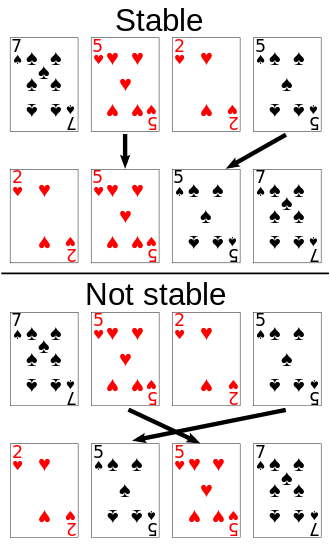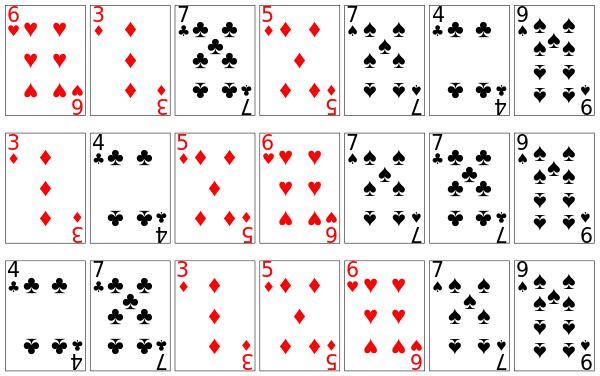Stable sort algorithms sort repeated elements in the same order that they appear in the input.
When sorting some kinds of data, only part of the data is examined when determining the sort order.

One application for stable sorting algorithms is sorting a list using a primary and secondary key. For example, suppose we wish to sort a hand of cards such that the suits are in the order clubs (♣), diamonds (♦), hearts (♥), spades (♠), and within each suit, the cards are sorted by rank. This can be done by first sorting the cards by rank (using any sort), and then doing a stable sort by suit:

Within each suit, the stable sort preserves the ordering by rank that was already done. This idea can be extended to any number of keys and is utilised by radix sort. The same effect can be achieved with an unstable sort by using a lexicographic key comparison, which, e.g., compares first by suit, and then compares by rank if the suits are the same.
